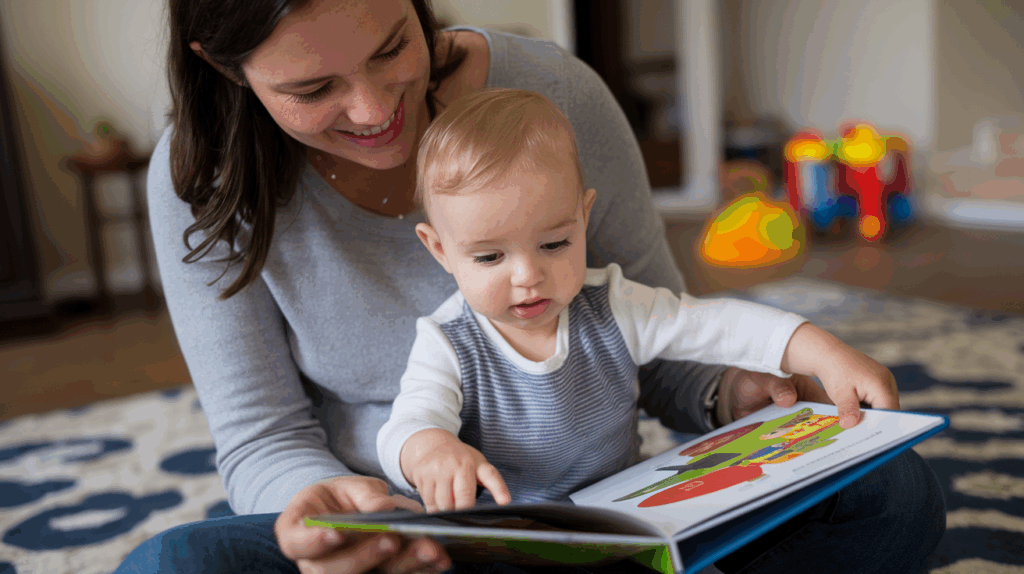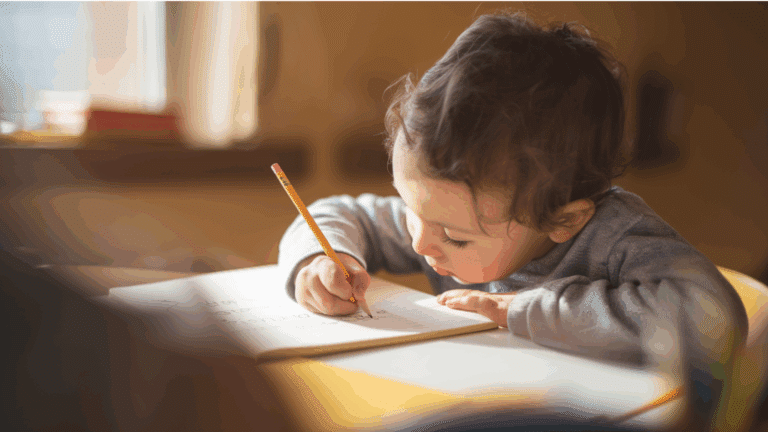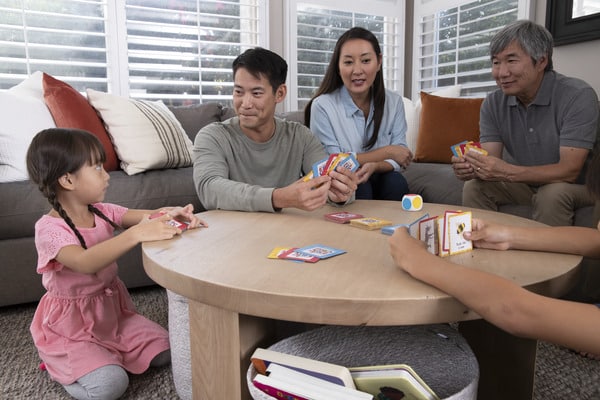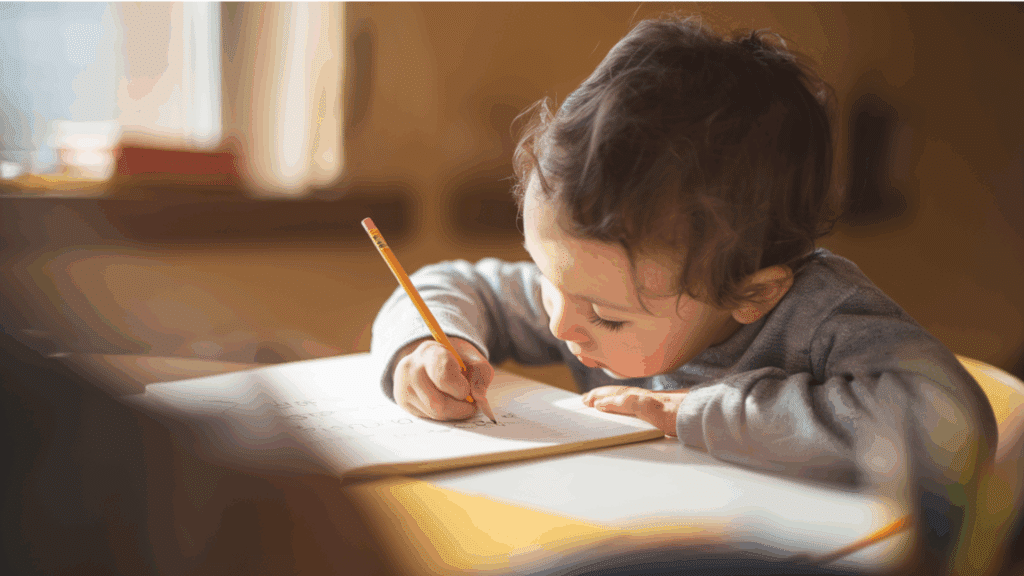Is your 15-month-old talking yet? Parents often worry when their toddler seems quiet compared to others at daycare or playgroups. You’re not alone in this concern.
Each child grows at their own pace, but knowing what’s typical can ease your mind. Most 15-month-olds say between 5-10 words, though some may say more and others less.
Your little one’s language skills grow quickly during this time. The way you talk, read, and interact with them shapes their speaking abilities in these early months.
This guide will show you what to expect from your toddler’s speech, signs of progress to look for, and simple ways to help build their vocabulary day by day.
Milestones of Speech: Birth to 15 Months
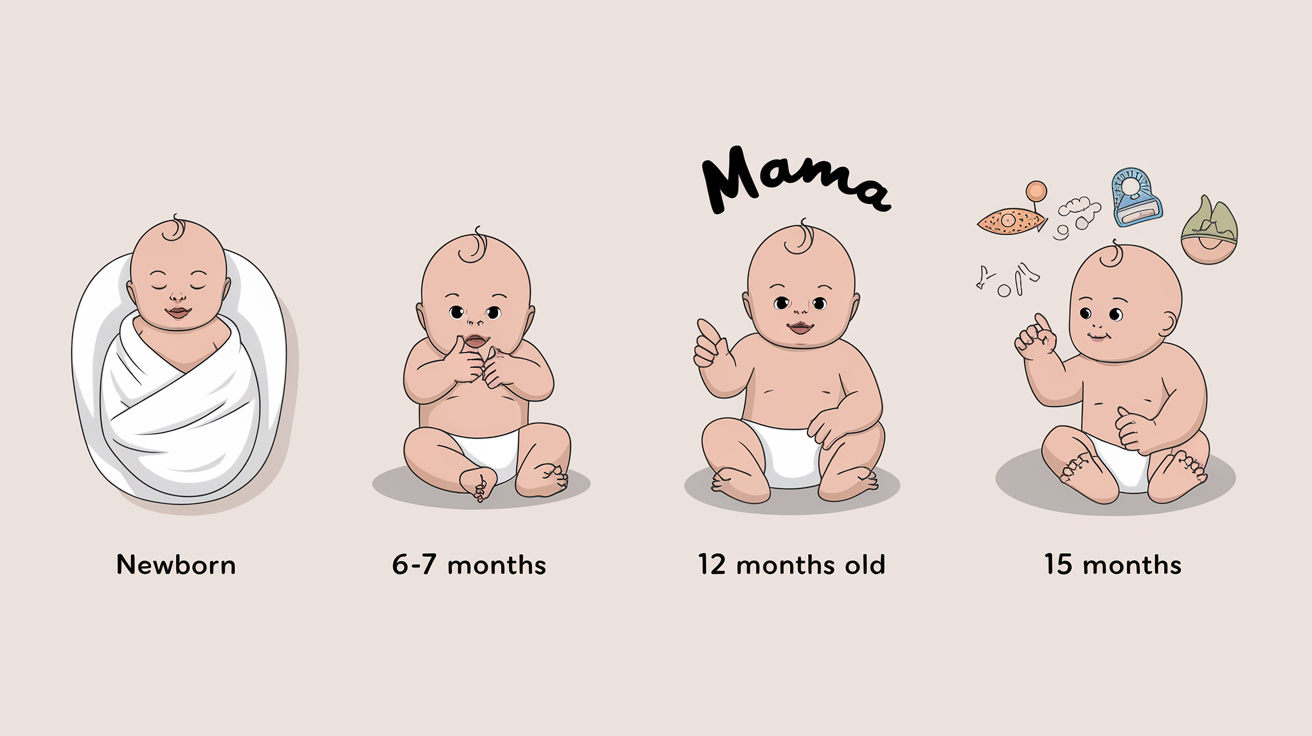
Babies start their communication path long before saying actual words. From birth, infants coo and make sounds that form the basis of speech. By 3-4 months, most babies babble and play with sounds. These early noises build the muscles and skills needed for talking later.
Between 6-12 months, babies begin to link sounds with meaning. They may say simple words like “mama” or “dada” by their first birthday. Not all babies follow the same timeline, though. Some say their first words at 8 months, while others wait until 14 months or later. Each child moves at their own speed.
Here’s a look at typical speech growth from birth to 15 months:
| Age | Speech Milestone |
|---|---|
| 0-3 months | Coos, gurgles, and cries with different tones |
| 4-6 months | Babbles and makes consonant sounds (ba, da, ga) |
| 7-9 months | Strings sounds together, responds to name |
| 10-12 months | Says 1-2 words, uses gestures to communicate |
| 13-15 months | Uses 5-10 words, points to objects when named |
Remember that these are just general guidelines – your child might reach these points earlier or later.
How Many Words Should a 15-Month-Old Typically Say?
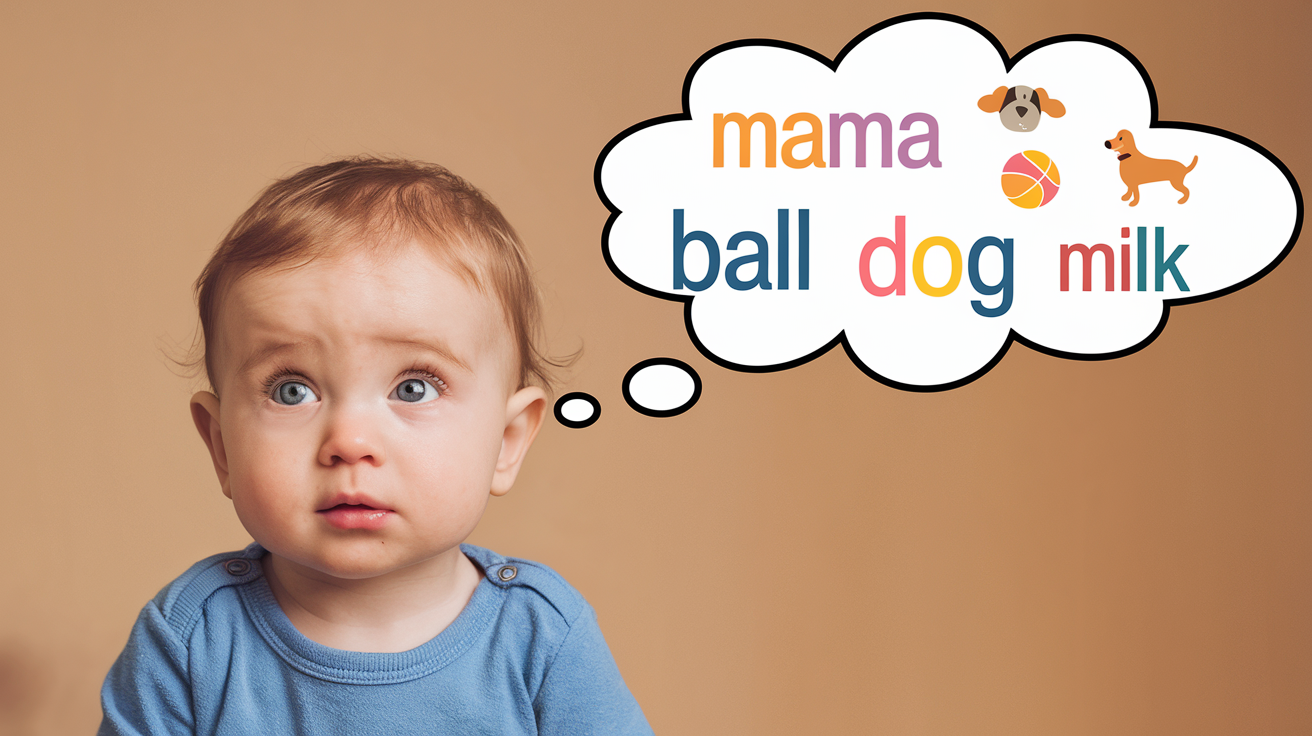
Most 15-month-olds say between 5 and 10 words. A study published in the Journal of Speech, Language, and Hearing Research found that vocabulary size at 15 months varies widely, with the average being around 10 words.
These words might not sound perfect – “ba” for ball or “wa-wa” for water counts too! What matters more than the number is that your child tries to communicate. Some toddlers might say fewer words but use lots of gestures to show what they want.
Boys often talk a bit later than girls, and children with older siblings might speak earlier.
If your child seems to understand words, follows simple directions, and makes attempts to communicate, they’re likely on track even if they say few words.
Common Words 15-Month-Olds Typically Speak
Looking for words your little one might say soon? Here’s a list of basic words many 15-month-olds begin to use in their daily life:
- Mama
- Dada
- Ball
- Baby
- Milk
- More
- No
- Hi/Hello
- Bye-bye
- Up
- Dog
- Car
Don’t worry if your child hasn’t mastered all these words yet. Each toddler learns at their own pace, and many use modified versions that only parents understand at first.
Commands 15-Month-Olds Are Able to Grasp
By 15 months, most toddlers can understand simple instructions even if they can’t say many words themselves. Here are common commands your little one might follow:
1. Come here: Your toddler should respond to this basic request, especially when paired with a hand gesture. They might crawl, walk, or toddle toward you when called, showing they connect words with actions.
2. Give me: Most 15-month-olds understand the concept of handing items over. They can pass you a toy, book, or spoon when asked, though they might sometimes refuse if it’s a favorite item!
3. Find your shoes/hat/toy: Your child may locate familiar objects when named. This shows they’re building word associations and can connect spoken words with real things in their environment.
4. Sit down: Simple body movement instructions are typically understood at this age. Your toddler might respond by sitting on the floor, chair, or your lap when asked.
5. Wave bye-bye: Social commands like waving, clapping, or blowing kisses are usually well-established by 15 months. These combine language understanding with social awareness.
Remember that understanding comes before speaking, so your child likely comprehends far more words than they can say right now.
Gestures and Sounds 15-Month-Olds Can Make
Communication at 15 months includes much more than just words – your toddler likely uses many gestures and sounds to express their needs and wants.
- Pointing: This key gesture shows your child can draw attention to what interests them. Most 15-month-olds point to objects they want, things that catch their eye, or to ask questions about something new.
- Waving and Nodding: Social gestures like waving hello or goodbye and nodding or shaking their head for yes/no are common at this age. These motions show your toddler understands social interactions.
- Making Animal Sounds: Many toddlers can mimic “woof-woof” for dog or “moo” for cow before they can say the actual animal names. These sound imitations build the foundation for more complex words.
- Showing and Giving: When your 15-month-old hands you things or shows you objects, they’re communicating shared interest. This back-and-forth exchange forms the basis of conversation skills.
- Using Sound Effects: Sounds like “vroom” for cars or “yum” for food show your child connects sounds with meanings. These sound effects often appear before the actual words do.
- Hand Gestures for Wants: Many toddlers use consistent hand motions for “up,” “more,” or “all done.” These purposeful movements bridge the gap while vocabulary grows.
These non-verbal communication methods are just as important as words and show your toddler’s brain is making connections needed for speech.
Tips for Expanding Your 15-Month-Old’s Vocabulary
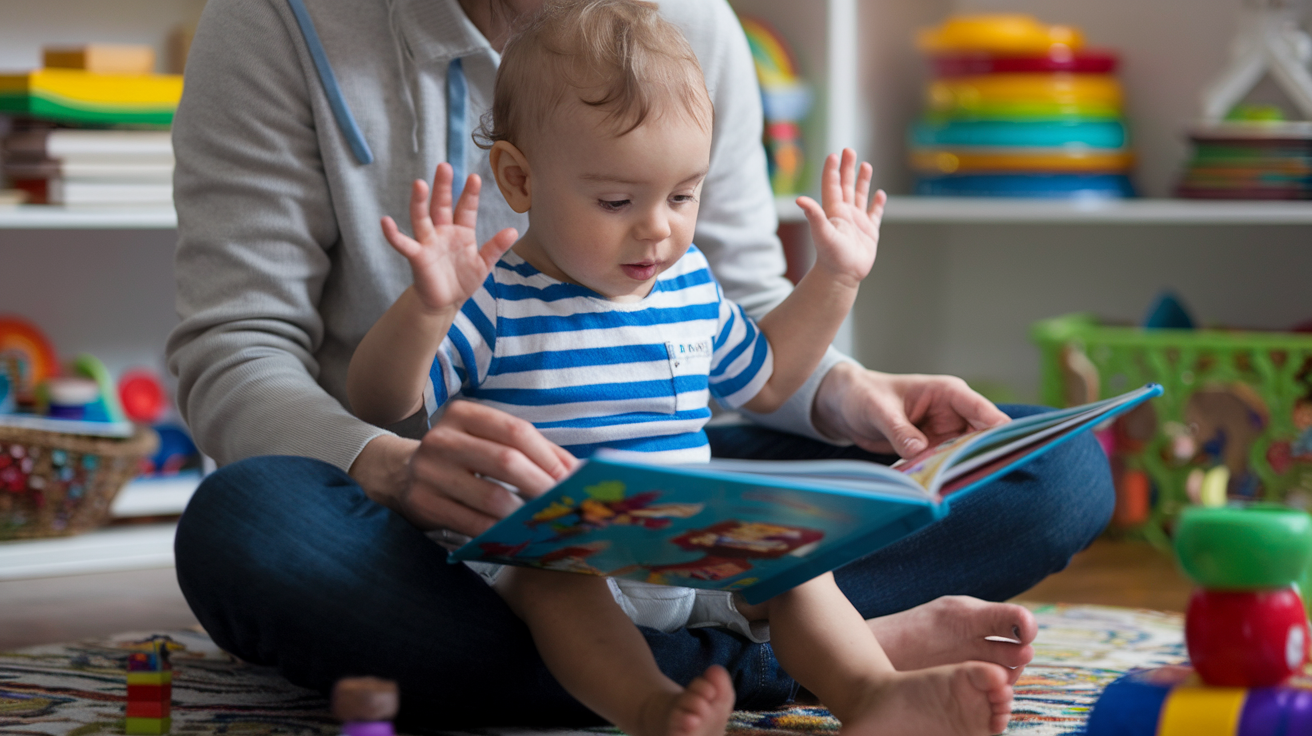
You can help your toddler learn new words every day with these simple strategies that fit into your normal routine.
Tip 1. Talk, Talk, Talk: Narrate your daily activities as you do them. When you make breakfast, say “I’m getting your cereal. Now I’m pouring milk. The spoon goes here.” This running commentary gives your child many chances to hear common words in context.
Tip 2. Read Together Daily: Books with simple pictures and few words work best at this age. Point to pictures and name them. Let your child turn pages and choose books. Even 5-10 minutes of reading several times a day helps build word knowledge.
Tip 3. Sing Songs and Play Music: Children often learn words through songs before speaking them in sentences. Simple rhymes and songs with actions like “Itsy Bitsy Spider” or “Wheels on the Bus” help connect words with movements.
Tip 4. Limit Screen Time: Babies learn language best from real people and face-to-face interactions. Many child development experts suggest keeping screen time minimal for toddlers under 2 years old, except for occasional video chats with family members.
Tip 5. Repeat and Expand: When your child says “ball,” you can say, “Yes, that’s a red ball” or “The ball is bouncing.” This technique shows you heard them while adding new words to what they know.
Tip 6. Be Patient and Positive: Never force your child to speak or show frustration when they can’t say a word. Instead, praise their attempts and focus on communication, not perfect pronunciation.
These small efforts add up over time, creating a word-rich environment where your child’s language skills can grow naturally.
Signs to Seek Help for Your 15-Month-Old’s Speech
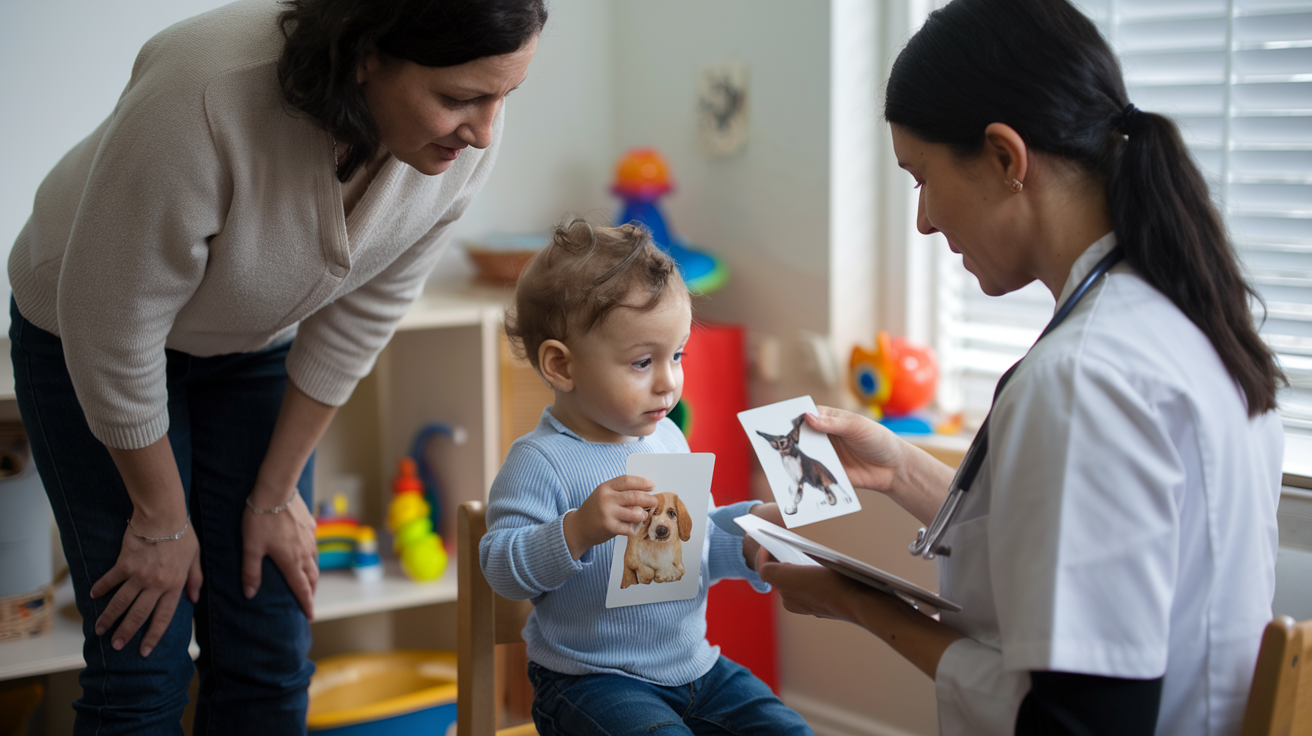
Contact your child’s doctor or a speech expert if you notice these warning signs:
- Your child doesn’t try to communicate through sounds, gestures, or words
- Your child doesn’t respond when you call their name
- Your child doesn’t babble or make consonant sounds like “ba” or “da”
- Your child doesn’t point at objects or show interest when you point
- Your child used to say words but has stopped saying them
Trust your instincts. Early help can make a big difference if your child needs extra support with speech.
Wrapping It Up
Your 15-month-old’s speech grows day by day, even when it seems slow. The main point to remember is that each child follows their own path in learning to talk.
What can you do now? Speak clearly to your child, read books together daily, and point out things you see during walks or errands. These simple acts build their word bank naturally.
If you’re concerned about your child’s speech, speak with your pediatrician. Early help makes a difference when needed.
Remember that words are just one way your child connects with you. Their gestures, sounds, and expressions all show they’re learning to communicate.
How is your 15-month-old’s speech coming along? Share your experiences in the comments below!

